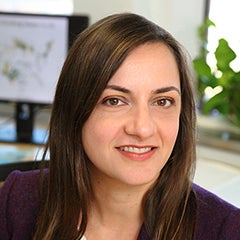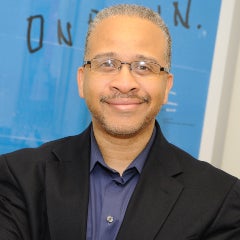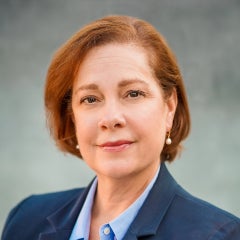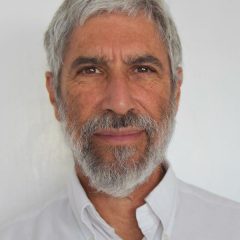Cancer Epidemiology Experts
Faculty Bios

Maria Argos, PhD, conducts research focused on the health effects of arsenic and other metals among children and adults in Bangladesh, the population of which has been severely affected by decades of elevated exposure to arsenic through consumption of naturally contaminated groundwater. Dr. Argos’ research has shown dose-response associations of arsenic with chronic disease outcomes (mortality and skin lesions), pregnancy outcomes, and early cardiometabolic impacts on children. Her work has also identified epigenetic mechanisms that may underlie these observed associations.

Vince Freeman, MD, MPH ’94, holds interests in cancer, healthcare access and delivery, and health equity. His research focuses on the causes and remedies of health disparities by race and place from biological, sociological and health care services perspectives. His major disease focus is prostate cancer, with an emphasis on the role of components of diet (antioxidants and fatty acids) and energy balance in cancer progression and their relation to racial/ethnic disparities in morbidity and mortality from the disease. As part of his research, he has built a repository of highly annotated biospecimens, including fresh normal and malignant prostate tissue, buffy coat DNA and repeated collections serum and plasma for longitudinal measurements of antioxidants, hormones, and other factors. His research has been supported by the Robert Wood Johnson Foundation Harold Amos Medical Faculty Development Program, Veterans Health Administration’s Health Services Research & Development Service, National Cancer Institute, American Cancer Society, and Department of Defense.

Caryn Peterson, PhD, focuses on determinants of racial, ethnic and socioeconomic disparities in cancer outcomes, including ovarian and Human Papillomavirus-related cancers. Her current work focuses on developing evidence-based programs to increase acceptability and utilization of the HPV vaccine, as well as screening to prevent HPV-related cancers among underserved individuals. She is also the co-director of UIC’s Cancer Education and Career Development Program, a National Cancer Institute-funded training grant that prepares pre-and postdoctoral fellows to conduct research in cancer disparities research.
Garth Rauscher, PhD, has conducted research in disparities in breast cancer screening, diagnosis and treatment for more than 15 years. Currently, he is the lead for the Metro Chicago Breast Cancer Registry, one of six active registries that contribute demographic, radiology and population-based breast cancer data to the Breast Cancer Surveillance Consortium. He serves as principal investigator for the Breast Cancer Care in Chicago study which has provided data for numerous student publications and presentations regarding racial/ethnic and socioeconomic disparities in breast cancer tumor characteristics, quality of care and outcomes.

Leslie Stayner, PhD, has more than 30 years of experience conducting research in the field of occupational and environmental epidemiology. Previously, he worked for the National Institute for Occupational Safety and Health and as a visiting scientist with the International Agency for Research on Cancer. His research current research focuses on the effects of exposures to nitrates and other agricultural chemicals in drinking water and the risk of childhood cancer and adverse reproductive and developmental outcomes. Previous research has centered on areas of occupational cancer, quantitative risk assessment and epidemiologic methods.